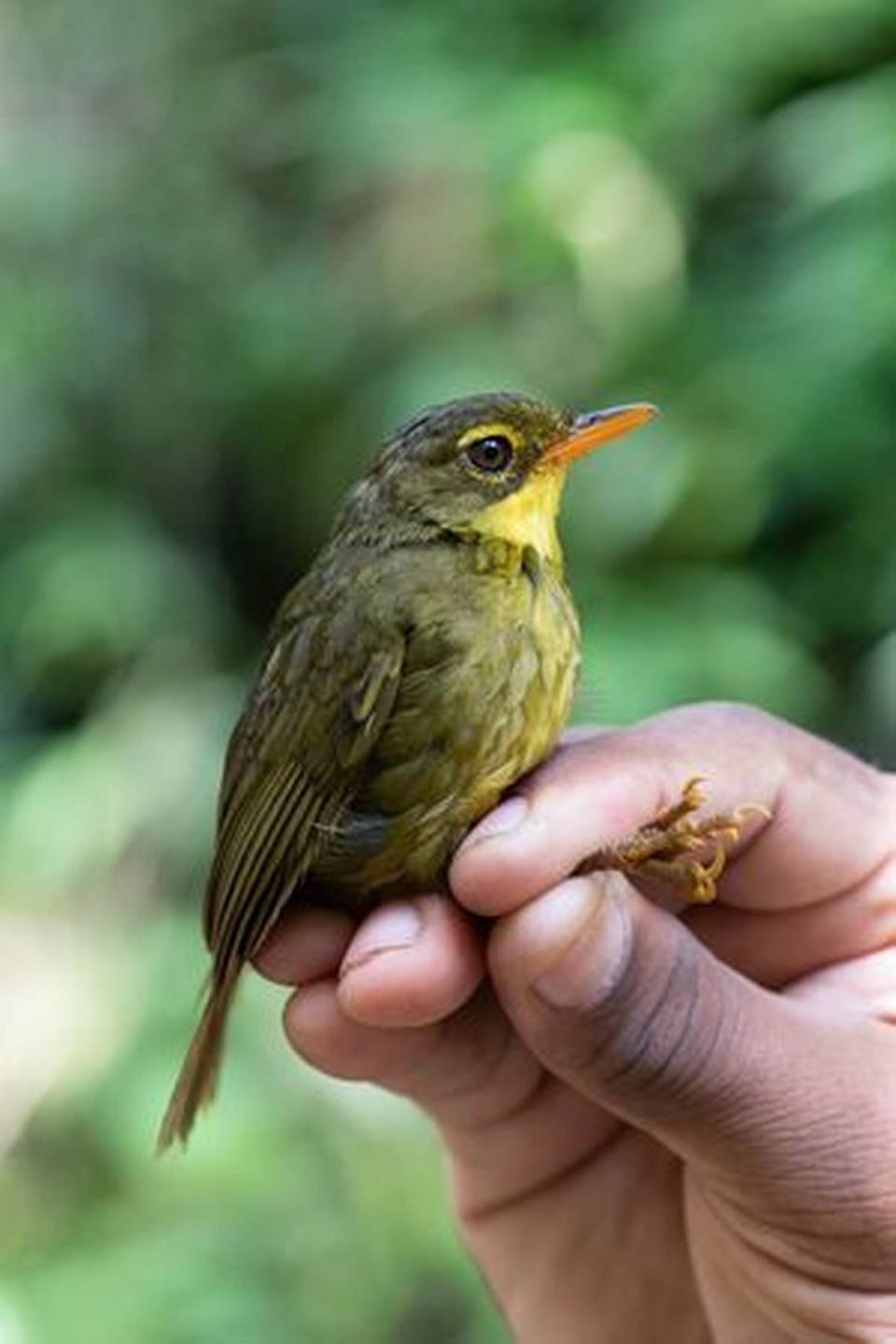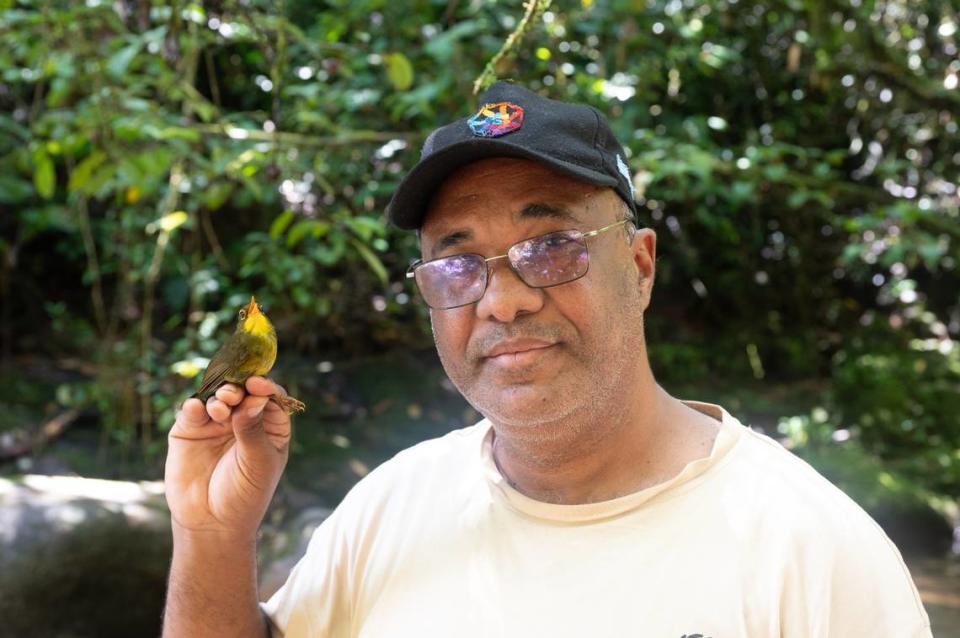‘Mysterious’ creature seen hopping along rainforest river for first time in 24 years
After eight days of searching rainforests in Madagascar, a researcher stood along a rushing river. Scanning the lush vegetation, something caught his eye.
Two teams of scientists embarked on expeditions into the rainforests on the northeastern coast of Madagascar. Both teams were looking for the same thing: the elusive dusky tetraka.
A “small olive and yellow-throated bird,” the dusky tetraka is native to the island off the east coast of Africa, the only place it is known to be found, The Peregrine Fund said in a Wednesday, March 1, news release.
The bird has a “warbler-like” song and hops along the ground.
There had not been a recorded sighting of the “mysterious” dusky tetraka in 24 years, wildlife researchers said. The two expeditions were hoping to find the “lost” songbird.

An expedition led by Armand Benjara and Yverlin Pruvot of The Peregrine Fund’s Madagascar Program searched for the bird along the Masoala peninsula.
Lily-Arison Rene de Roland led another expedition with John C. Mittermeier of the American Bird Conservancy to the rainforest around Andapa, the dusky tetraka’s last known location. The team drove over 40 hours and hiked into the mountains.
They unsuccessfully searched the area for a week. On their eighth day, Mittermeier was near a rocky river when he spotted a bird “hopping around in dense undergrowth near the river,” the release said.
Mittermeier snapped a picture of the bird and showed it to the team. Everyone agreed. The creature looked like the evasive songbird.
Returning to the area near the river the next day, the team captured a dusky tetraka, wildlife experts said. They measured the songbird and released it unharmed.

The expedition into the Masoala peninsula was also successful.
“Seeing the bird for the first time was truly a surprise,” Benjara said in the news release. “Our entire team was extremely happy and excited.”
The location of the songbird’s rediscovery may help explain its ability to elude researchers, Mittermeier said in the release.
If the birds prefer being near rivers, researchers might have struggled to find them because they couldn’t hear their calls.
“Birding in tropical forests is all about listening for bird calls,” he said, “and so you naturally tend to avoid spending time next to rushing rivers where you can’t hear anything.”
Christina Biggs of Re:wild told the American Bird Conservancy that “due to the changed landscape and its cryptic nature, the searchers had to employ some resourceful detective work and impressive persistence to make the eventual rediscovery.”
“We’re thrilled and relieved to know that this little bird is still singing in the forests of Madagascar,” Biggs said.
Despite the recent sightings, little is known about the dusky tetraka, wildlife experts said. The songbird is likely a threatened species, but researchers don’t have enough information to know for sure.
Hoping to find out more about the mysterious creature, researchers have planned multiple future expeditions to study the species, Rene de Roland said in the release.
‘Massive’ Arctic creature spotted for first time in 25 years along coast of Scotland
Feisty flightless bird spotted for the first time in decades in area of New Zealand
This paperclip sized frog peeps so loudly for mate that it could cause hearing damage

